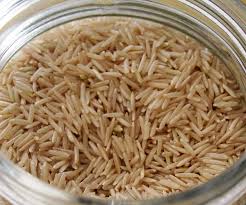Basmati Rice- Production, Cultivation & Certification
Basmati is a long, slender-grained aromatic rice variety which is traditionally grown in India, Pakistan, and Nepal.
Agro-climatic conditions of the specific geographical area, as well as the method of harvesting, processing and aging, attribute these characteristic features to Basmati rice.
Owing to its unique characteristics the “scented Pearl” lends a touch of class that can transform even the most ordinary meal into a gourmet’s delight.
Many countries use domestically grown basmati rice crops; however, basmati is geographically exclusive to certain districts of India and Pakistan.
According to Agricultural and Processed Food Products Export Development Authority (APEDA), a rice variety is eligible to be called basmati if it has a minimum average precooked milled rice length of 6.61 mm and average precooked milled rice breadth of up to 2 mm, among other parameters.
History
Basmati” is long grain aromatic rice grown for many centuries in a specific geographical area, in the Himalayan foothills of the Indian sub-continent. Basmati rice is unique among other aromatic long-grain rice varieties.
Basmati rice is believed to have been cultivated in the Indian subcontinent for centuries. Earliest mention of Basmati rice has been made in the epic Heer Ranjha composed by the Punjabi poet Varis Shah in 1766.
Production & Area of Cultivation
- India accounts for over 70% of the world’s basmati rice production. The areas of Basmati Rice production in India are the states of J & K, Himachal Pradesh, Punjab, Haryana, Delhi, Uttarakhand and western Uttar Pradesh.
- The areas which have a geographical indication for basmati rice production in India are in the states of Punjab, Haryana, Himachal Pradesh, Delhi, Uttarakhand, Western Uttar Pradesh and Jammu and Kashmir.
- India is the leading exporter of Basmati Rice to the global market. The country has exported 3,948,161.03 MT of Basmati Rice to the world for the worth of Rs. 26,416.49 Crores during the year 2021-22.
- Major Export Destinations (2021-22): Iran, Saudi Arab, Iraq, United Arab EMTs, U S A and Yemen Republic.
- Organisations such as Kheti Virasat Mission are trying to increase the amount of organic basmati rice that is being grown in the Punjab in India.

Aroma and flavour
Basmati rice has a typical pandan-like (Pandanus amaryllifolius leaf) flavour caused by the aroma compound 2-acetyl-1-pyrroline. Basmati grains contain about 0.09 ppm of this aromatic chemical compound naturally, about 12 times as much as non-basmati rice varieties, giving basmati its distinctive fragrance and flavour. This natural aroma is also found in cheese, fruit and other cereals.
Varieties
So far 34 varieties of Basmati rice have been notified under the seeds Act, 1966.
These are Basmati 217, Basmati 370, Type 3 (Dehraduni Basmati) Punjab Basmati 1 (Bauni Basmati), Pusa Basmati 1, Kasturi, Haryana Basmati 1, Mahi Sugandha, Taraori Basmati (HBC 19 / Karnal Local), Ranbir Basmati, Basmati 386, Improved Pusa Basmati 1 (Pusa 1460), Pusa Basmati 1121 (After amendment), Vallabh Basmati 22, Pusa Basmati 6 (Pusa 1401), Punjab Basmati 2, Basmati CSR 30 (After amendment), Malviya Basmati Dhan 10-9 (IET 21669), Vallabh Basmati 21 (IET 19493), Pusa Basmati 1509 (IET 21960), Basmati 564, Vallabh Basmati 23, Vallabh Basmati 24, Pusa Basmati 1609, Pant Basmati 1 (IET 21665), Pant Basmati 2 (IET 21953), Punjab Basmati 3, Pusa Basmati 1637, Pusa Basmati 1728, Pusa Basmati 1718, Punjab Basmati 4, Punjab Basmati 5, Haryana Basmati 2 and Pusa Basmati 1692.
Certification
The Basmati Mark is a DNA-fingerprinting-based certification done by the laboratory of Basmati Export Development Foundation (BEDF).
On 15 February 2016, the Agricultural & Processed Food Products Export Development Authority (APEDA) registered Basmati Rice as a product with Geographical Indication (GI).